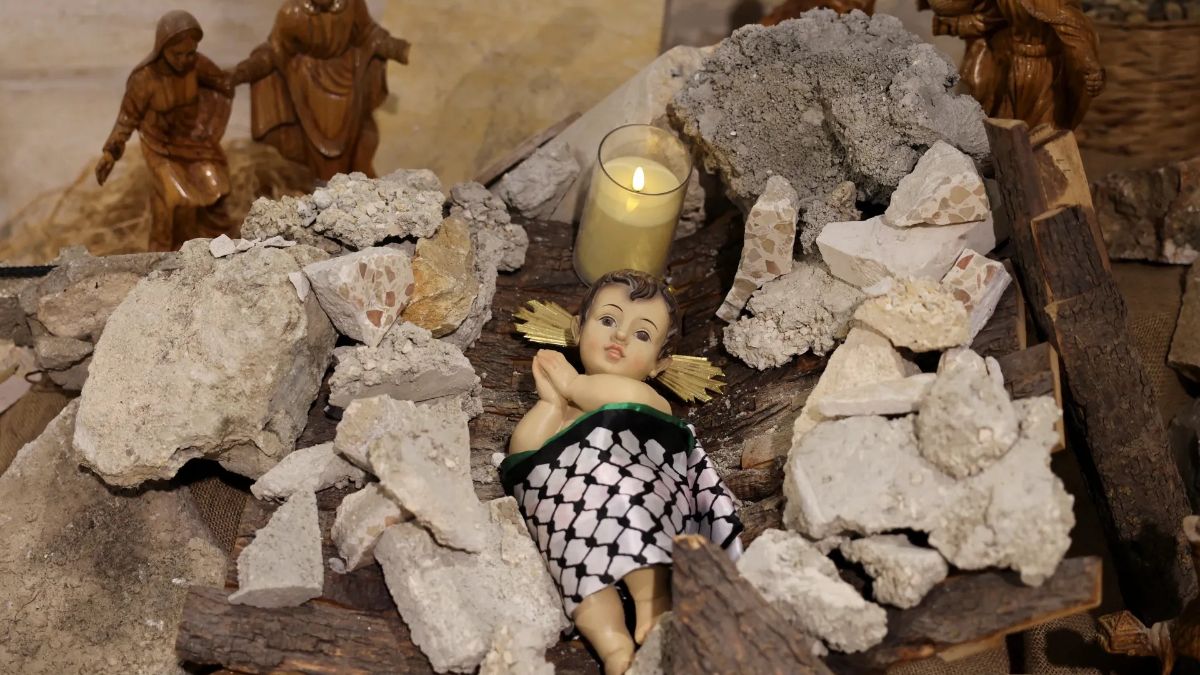Joy
"Jesus answered, "The first is, 'Hear, O Israel: the Lord our God, the Lord is one; you shall love the Lord your God with all your heart, and with all your soul, and with all your mind, and with all your strength. The second is this, 'You shall love your neighbor as yourself.' There is no other commandment greater than these."
Mark 12:29-31
October 29, 2015, Words By: Ryan Taylor, Image By: "joy!" by atomicity (CC BY-ND-NC 2.0)
I recently heard an acronym popular among church youth groups for helping shape their understanding of faith: J.O.Y., which stands for Jesus, others, yourself. It’s a memory tool used to help young Christians in their understanding of discipleship.
Although I wasn’t familiar with J.O.Y., its general meaning was something drilled deeply into my young faith as a Christian. Having attended church all my life, I had been conditioned to see my spirituality through the following lenses: 1) put God first in your life! 2) love your neighbor, and 3) your own needs are not as important.
Much of the notion of placing God first in our life comes from this week’s crucial text. Jesus sure seems to communicate the weight of this message when he adds in a parallel Gospel passage, “All of the law and the prophets hang on these two commandments” (Matt. 22:40).
Here’s what Jesus says the entire law and message of the prophets hinges on:
“‘You shall love the Lord your God with all your heart, and with all your soul, and with all your mind, and with all your strength.'” (Mark 12:30) and “‘You shall love your neighbor as yourself'” (v. 31).
This was his response to the question asked by a Pharisee within the larger audience of pious religious gatekeepers, “Which commandment is the first of all?” (v. 28) Considering his audience, getting the answer wrong would have surely fast-tracked the process of his crucifixion.
In order to meet their rigid requirements, Jesus begins by quoting what is known as the Shema, the centerpiece of traditional Jewish prayer: “‘Hear, O Israel: the Lord our God, the Lord is one; you shall love the Lord your God with all your heart, and with all your soul, and with all your mind, and with all your strength'” (v. 29-30).
This was the response that saved his neck from immediate lynching. We see Jesus cleverly sidestep similar deadly traps many times throughout the Gospels. He really he wasn’t asked to offer anything more than this simple answer. But Jesus takes the risk to expound and expand on his response. Seemingly without taking a breath, Jesus continues, “The second is this, ‘You shall love your neighbor as yourself.'”
Through the filter of Greco-Roman translation, many current-day Christians in America shape this message into the three-fold checklist I referenced at the beginning: 1. God 2. neighbor 3. self.
But was Jesus really offering us an orderly spiritual checklist?
In order to answer that question, it’s crucial to see two pieces of ancient context. The first, Jesus wasn’t Greek or Roman. He lived and breathed from an integrated and holistic perspective. He simply wasn’t shaped by categories and lists in the manner my western (Greco-Roman) paradigm has shaped me.
The second piece of context comes down to the section that The New Living Translation interprets as “the second is equally important” (v. 31, emphasis mine), echoing the parallel passage from Matthew. This translation captures the essence of the original language, through which Jesus conveys that healthy neighborly love mirrors healthy self-love, and this translates into worship of the one true God.
In other words, there is no ordered list. Perhaps a healthier image would be of three concentric circles pointing to the reality that everything is connected. It’s far less about practices of personal piety and far more about our collective participation in God’s expansive design for harmony and wholeness.
As Jesus says, all of the laws and messages of the prophets hinge on this way of integrated seeing and being. There is no area of my life, my work, or even my leisure and play that is not an intimate encounter with God’s love. Coming to terms with this allows me a sense of liberation from the cosmic checklist as I’m drawn forward and deeper into the experience of joy.
Peace,
Ryan Taylor
Street Psalms friend, director of spiritual formation community Access and co-director of Network, a drop-in coffeehouse for the chronically homeless in Denver.



